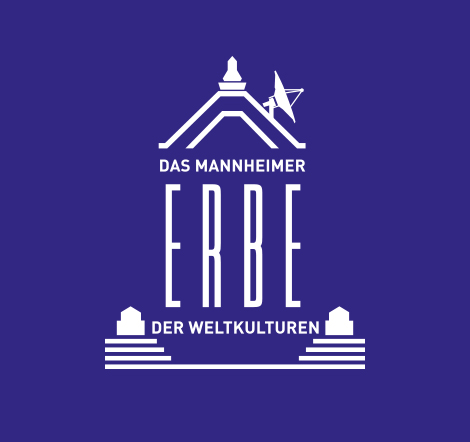The Mannheim World Cultures Heritage List
A participatory culture project for the international city
under the patronage of the German Commission for UNESCO
Background
In 1972 the UNESCO passed the Convention concerning the Protection of the World Cultural and Natural Heritage. Over 1.000 cultural goods in 160 nations are enlisted on the UNESCO World Cultural Heritage List – sites and objects of outstanding cultural value which are chosen every year by a committee assembled of representatives from 21 nations.
But what if the outstanding examples of your culture are located in a country far away from the place you live or made inaccessible by war or political conflict? How to enlive and care for a cultural heritage when living far away from home? What do the 27 million Italians or the 20 million Polish who are scattered all over the globe, or the 9 million Syrians who had to flee their country take with them as cultural heritage?
The Project
The Mannheim Heritage of World Cultures is a playful copy of the UNESCO World Heritage program, applied to the migration society Germany. In Mannheim people from over 160 Nations gather in the city`s limits. The people represent more than 160 cultures of the world with their cultural preferences, practices and memories. Over the run of a year we invite each of these communties to designate a representative person to file a nomination for the list of the Mannheim Heritage of World Cultures: objects, places, traditions, rites or skills that present the most valuable of a people`s culture here at their migrant home. These objects may be objects of high materialistic value or cheap copies, sacral relics or profane souvenirs, true school or hybrid and shaped by the allocation and alignment into german culture.
The Show
On the 20th and 21st January 2017 we are setting up a re-enactment of the annual UNESCO Committee Assembly in Mannheim`s townhouse parliament. A committee of 21 citizens of Mannheim will survey all cultural goods. Every nomination is solemnly admitted to the list of Mannheim’s Heritage of World Cultures. If a community can not decide between two cultural goods, both get admitted.
The List
A list of the most precious and best of what Mannheim`s immigration culture has to offer will be created – a new identification object for all citizens of the city and a unique tourist sensation: 160 sites of World Culture Heritage in one metropolis! Following the Committee Assembly we publish all nominations on our website and inform about their origin, meaning and the processes and discourses leading to their nomination.
The Exhibition
The project closes with a big exhibition of the Mannheim Heritage of World Cultures in May 2017 at zeitraumexit, at the Zeughaus of Reiss-Engelhorn-Musen as part of the Mannheim heritage collection and on various sites in the public space. A mobile phone app is in planning to guide visitors to the sites of Mannheim’s Heritage of World Cultures.
Intention
The project invites the inhabitants of a middle sized city to reenact and reinterpret one of the big political ideas of our times: instead of monumental or iconic originals, alterations and copies will be awarded, instead of thousand years old cultural landscapes a BBQ place may become a symbol, instead of the pure, variations and accommodations will be appreciated. The heritage of migrant communities will serve as a new focal point of identification for Mannheimers and connect all citizens while emphasizing and visualizing the richness of cultural diversity. The project consigns the responsibility and authority to define a cultural canon to migrants and refugees and offers the chance to remix cultural representations and complement existing constructions of cultural legacy.
A project by zeitraumexit e.V. under the patronage of the German Commision for UNESCO and in cooperation with the Goethe Institute Mannheim, the Reiss-Engelhorn-Museen, the City Archive Mannheim, Forum Mannheim, and the Heidelberg Center for Cultural Heritage. The project is funded by the Funds for Innovation Baden-Württemberg, the City of Mannheim, MVV Energy and the Family Fuchs.

